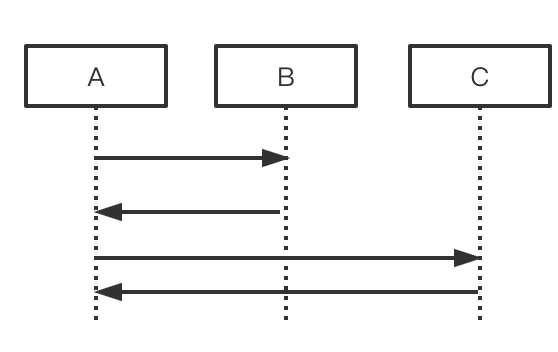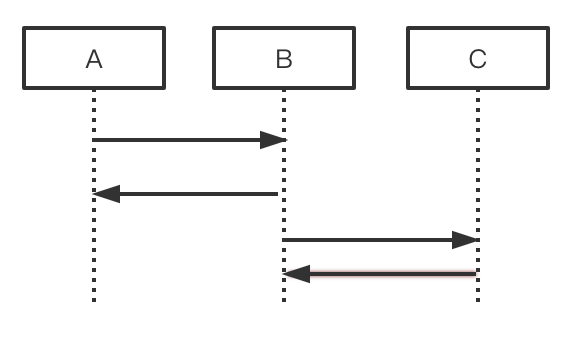Europa contract execution log
Here is the structure for recording contract execution information in the current Europa pallet-contract:
/// Record the contract execution context.pub struct NestedRuntime { /// Current depth depth: usize, /// The current contract execute result ext_result: ExecResultTrace, /// The value in sandbox successful result sandbox_result_ok: Option<ReturnValue>, /// Who call the current contract caller: AccountId32, /// The account of the current contract self_account: Option<AccountId32>, /// The input selector selector: Option<HexVec>, /// The input arguments args: Option<HexVec>, /// The value in call or the endowment in instantiate value: u128, /// The gas limit when this contract is called gas_limit: Gas, /// The gas left when this contract return gas_left: Gas, /// The host function call stack env_trace: EnvTraceList, /// The error in wasm wasm_error: Option<WasmErrorWrapper>, /// The trap in host function execution trap_reason: Option<TrapReason>, /// Nested contract execution context nest: Vec<NestedRuntime>,}The log example corresponding to this structure is as follows.
1: NestedRuntime { ext_result: [success] ExecReturnValue { flags: 0, data: }, caller: d43593c715fdd31c61141abd04a99fd6822c8558854ccde39a5684e7a56da27d (5GrwvaEF...), self_account: 0144d6fc570d7bddda6f8e36141f179cd172324599b556ef514193f3105865f6 (5C6NMXaS...), selector: 0x9bae9d5e, args: 0x40420f00000000000000000000000000, value: 10000000000000000, gas_limit: 200000000000, gas_left: 190018947968, env_trace: [ seal_input(Some(0x9bae9d5e40420f00000000000000000000000000)), seal_caller(Some(0xd43593c715fdd31c61141abd04a99fd6822c8558854ccde39a5684e7a56da27d)), ... seal_set_storage((Some(0x0300000001000000000000000000000000000000000000000000000000000000), Some(0x000000000000000000000000))), ], sandbox_result_ok: Value( I32( 0, ), ), nest: [],}Log field description#
| Field | Description |
|---|---|
| 1: NestedRuntime | Call the contract execution log with a depth of 1. |
| ext_result | The execution result of the contract at the pallet-contract level, there are two cases: [success] and [failed]. [success] can only indicate that the execution was successful at the pallet-contract level, but the business logic of the contract itself may throw an Error. The data value in ExecResultValue {flag:0, data: 0x...} may be the return value of the contract, or the enumeration value of Error defined in the contract. [failed] will be followed by an ExecError {.. }, the error message is defined in pallet-contracts. |
| caller | The caller of this contract may be the user or another contract account. When the value is 0x000..., it is called by RPC. |
| self_account | Current contract account. |
| selector | The function identifier passed to the contract, and the corresponding relationship can be queried in the metadata.json of the contract. |
| args | The parameters passed to the contract calling function. |
| value | Transfer amount to the current contract. |
| gas_limit | The maximum amount of gas that can be used by the current contract. |
| gas_left | The amount of gas remaining when exiting the current contract. |
| env_trace | During the execution of the current contract, the call stack of host_function gives the parameters of each function in detail. Take seal_call as an example. If the input is Some(xxx) and the output is empty, then there may be an error in the process of calling each other between the contracts. |
| trap_reason | The reason for trap encountered during host_function execution. Return & Termination & Restoration: It is the normal exit strategy executed by the contract, not Error. SupervisorError: DispatchError defined in pallet_contracts. |
| wasm_error | If a Wasm execution error occurs in the contract, the Wasm call stack will be printed in this field. If and only if ext_result is [failed]. |
| sandbox_result_ok | If there is no trap and no wasm_error during the execution of host_function, then the contract is considered to be executed successfully and this field is printed. This field carries a ReturnValue information. In ink!, if the value returned is not 0, then an Error defined in ink! may have occurred, and the corresponding DispatchError needs to be queried. |
| nest | Contract log of nested calls. If the current contract calls other contracts, the execution log of the called contract will be nested in this field. |
Contract nested call#
Examples of mutual calls between contracts are as follows.
In contract A, call contract C after calling contract B.

1: NestedRuntime { self_account: A, nest:[ 2: NestedRuntime { self_account: B, nest:[], }, 2: NestedRuntime { self_account: C, nest:[], } ]}In contract A, call contract B, in contract B, call contract C

1: NestedRuntime { self_account: A, nest:[ 2: NestedRuntime { self_account: B, nest:[ 3: NestedRuntime { self_account: C, nest:[], } ], } ]}env_trace:#
Indicates that during the execution of the current layer of the contract, each time host_function is called in the contract Wasm execution, a record will be added to the list here. Because all host_functions and the definitions in define_env! in the pallet contracts module are related, so tracing env_trace can trace the process of interacting with pallet contracts during the execution of the current Wasm contract.
For example, if following thing appears in env_trace:
seal_call: It means that there is a contract call contract situation in the current contract. According to the order in whichseal_callappears inenv_trace, it can correspond tonestto calculate the state before and after the contract calls the contract.seal_get_storage&seal_set_storage: It means that data read and write occurred in the contract. Through these two interfaces, it is possible to intercept and count the data read and write during the execution of the current contract, and the data size calculated byseal_set_storagecan also be used to infer the storage size required byrent.seal_deposit_event: indicates that the event is printed in the contract. Here you can intercept the content of each event separately, instead of getting a unified event at the end. And the following text will use an example to surface that Europa can quickly locate the bug in thehost_function.
On the other hand, the statistics of env_trace are relatively fine-grained. For example, if there are multiple possible errors in host_function, when an error occurs, all the information before the error will be retained, so it can be located to the place where the problem occurred during the execution of host_function.
And if there is an error in host_function that causes the contract to end execution, env_trace records the last error host_function call, so you can directly locate which host_function caused the contract execution exception.
trap_reason:#
According to the definition of TrapReason in pallet contracts, trap_reason can be divided into 2 categories:
Return&Termination&Restoration: indicates that the contract exit is the design ofpallet contracts, not an internal error. This type of trap indicates that the contract is executed normally and is not an error.SupervisorError: Indicates that an error occurred during the execution of the contract calling host_function.
Therefore, the current Europa log printing design is designed to record whenever trap_reason appears. On the other hand, trap_reason may not always appear during the execution of the contract. Combining the design of pallet contracts and ink!, there is a case where the successful execution of the contract or the execution failure in the ink! layer does not generate trap_reason. Therefore, in addition to recording trap_reason, Europa also records the results returned by the Wasm executor after execution, which is recorded with sandbox_result_ok.
sandbox_result_ok:#
The value of sandbox_result_ok represents the result of the contract after the Wasm executor is executed. This value could have been recorded as sandbox_result, including correct and incorrect conditions. However, due to the limitations of Rust and combined with the business logic of pallet contracts, only the result of sandbox_result is kept as Ok here. For log printing, Europa is designed to print sandbox_result_ok only when trap_reason is the first case, as information to assist in judging contract execution.
sandbox_result_ok is the Wasm executor result after calling invoke After the processing of to_execution_result, if there is no trap_reason, the result of Ok(..) is [discarded](https://github.com/paritytech/substrate/blob/712085115cdef4a79a66747338c920d6ba4e479f /frame/contracts/src/wasm/runtime.rs#L366-L368). But in fact there are two situations here:
- An error occurred in
ink!: According to the implementation ofink!, before calling the functions wrapped by the contract#[ink(message)]and#[ink(constructor)], the input The process of decoding and matchingselector. If an error occurs during this process, the contract will return error codeDispatchError. But for the Wasm executor, the Wasm code is executed normally, so the result will be returned, including this error code. This contract execution process is an error situation. - The return value of
#[ink(message)]is defined as(): According to the implementation ofink!, if the return value type is(),seal_reasonwill not be called, so it will not Containstrap_reason. This contract execution process is an correct situation.
Since ink! is only a contract implementation that runs on pallet contracts, other implementations may have different rules, so currently sandbox_result_ok is only used to assist in determining the execution of the ink! contract, the value is ReturnValue. Among them, if the <num> part of ReturnValue::Value(<num>) of the log is not 0, it means that there may be an error in the execution of ink!. You can use ink! for DispatchError The error code determines the error.